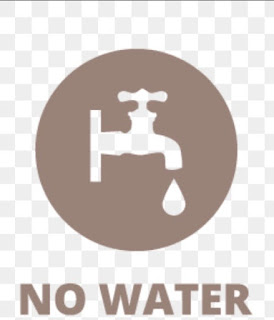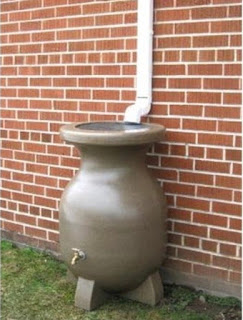Water Outage
Do you live in the city or country? Your location may also define your water source. If you’re a city dweller, you likely have city water, but if you live more remotely, you may depend on a well for water. And a well pump requires electricity to function.
Last week a bad weather front raced across the country with severe storms and tornados. At one point, our home was in the middle of three tornado warning vortexes. We are fortunate that we only saw high winds and did not lose power, but the lightning dancing around the mountains caused a power surge that shut down our well pump. The good news is that I could reset the charge controller; the bad news is that the controller has required frequent resets over the weekend with only short periods of water availability. The well company cannot service our well until Wednesday, at the earliest.
In the interim, we have resorted to water conservation and water storage capabilities. You may not realize how much water you use when it flows freely from your tap, so consider what you actually need.
Lots of potable water for drinking and cooking for both you and your pets.
For more extended use, larger volumes of water may be prudent. Note: do not store directly on a concrete floor. Place the bottles on pallets.
Keeping clean is vital for health. Have a supply of hand sanitizer on hand. When the water goes out, set a dispenser in the kitchen and each bathroom sink. Avoid passing undesirable germs around your home.
Water for hygiene: the shower won’t work, so you’ll need a way to take a bucket or sponge bath. Depending on the amount of water available, you can either (1) douse yourself with water from a bucket, soap up, then re-douse to rinse, or (2) use a damp soapy cloth to clean your face, under your arms, and your private areas. Empty laundry detergent bottles can be rinsed out, filled with clean water, and stored for emergency use. Bonus points: less plastic in the landfills.
Bathroom resources: you need water to flush toilets. How will you accomplish that? A five-gallon bucket of water will provide approximately two flushes.
As indelicate as it may seem, if there is more than one toilet in your household, select the most convenient seat, maybe the powder room, as a “urine only” toilet (paper goes in a trash can), and flush this receptacle once daily. Other toilets can be used for bowel movements and flushed upon usage. This routine will save a large amount of water.
If you have bathtubs in your home and you have warning of a storm’s approach, i.e., tornado and/or hurricane, you can store water in your bathtubs in a clean enclosed manner in a WaterBOB. Simply fill, then use the attached hand pump to dispense.
If the outage is extended, and you can’t get to town, or storms have ravaged your city, how will you continue to deal with a water outage? If you have a metal roof on your home, you can plan ahead by installing a water collection system of rain gutter, downspouts, and water barrels.
We have ten 55-gallon barrels on our property: eight on the house and two on the carport, water to sustain us and our gardens.
City folks may be thinking: this doesn’t apply to me, but it might. A storm may cause contamination of local water reservoirs, so you too may be affected!
The bottom line is that we are experiencing a minor inconvenience, but some neighbors on our shared well have done none of the above preparation and are quite distressed about the lack of running water. Don’t let this be you. Take the simple steps outlined above to be ready if a water outage strikes your area.
You can follow the Author on her Website or at Twitter.











Comments
Post a Comment